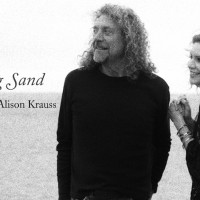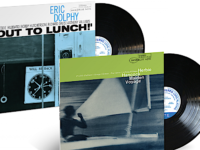There’s been a plethora (love that word) of releases on the rock side of the genre ledger that has demanded by attention. You see, the rocksters listed here were all riding high back in the seventies, so naturally, I was curious to see if they still got “it.” In each case, the answer is “yes”, but for two of them, they did so by taking somewhat of a departure from their most-recognized style. The third one showed he still has the mojo by releasing for the first time tracks from his mojo period.
Levon Helm Dirt Farmer
Vocalist drummers are an amazing lot to me. Not because it’s supposed to be particularly hard to drum and sing at the same time; I wouldn’t know. But for the band to want that guy to lead sing he must be pretty good, anyway, because the drummer is typically the last dude anybody thinks of for a lead vocalist. Even Genesis went through an exhaustive audition of Peter Gabriel’s replacement before it occurred to them that The Answer was right there sitting behind a Gretsch set. Few people even remember anymore that Don Henley is a drummer.
Levon Helm is another of those guys. To me, his earthy, Arkansas drawl epitomized the roots-minded rock combo The Band just as much as Robbie Robertson’s evocative compositions on American folklore. And now he’s back with a rare studio album that makes The Band sound like a sleek, electronica dance music. There’s not a trace of a plugged-in instrument anywhere and amongst songs by Steve Earle and J.B. Lenoir are songs that aren’t even copyrighted anymore. But Helm’s steady drumming and blessedly rural warble remains. That should be plenty good enough for any fan of The Band.
Herbie Hancock The Herbie Hancock Trio (1977)
I haven’t listened to The Joni Letters yet, but I did come across this hidden gem of his from three decades ago. And why, pray tell, is it hidden? Because Columbia Records didn’t see a market for acoustic Herbie back then when his electric funk-jazz Headhunters albums were selling more records than many rock stars. That’s still no excuse to make this available only as an import even today, though.
The Trio of this album is the hornless part of Miles’ Second Quintet (or the hornless version of V.S.O.P., which was recording and touring at the time this record was cut). So, a trio with Ron Carter on bass and Tony Williams on drums is like a Trio Of Doom for advanced bop. Only this time Tony didn’t threaten to kick Ron’s ass in making this record. It’s all good stuff, but hearing Herbie tackle his gorgeous number “Speak Like A Child” with his piano filling in for the horn parts is worth the import price alone.
Robert Plant/Alison Krauss Raising Sand
The album is credited to “Robert Plant and Alison Krauss” but producer T-Bone Burnett deserves a co-lead credit, here. He’s managed to make two very talented but seemingly incompatible stars sound like an instinctive pairing. That I didn’t think of Lep Zeppelin of one second when listening to this amounts to a major accomplishment in my book.
On the other hand “bluegrass” didn’t come to my mind, either, even when Krauss pulled out her fiddle. The sonic imagery Burnett paints has a worn feel but with modern preciseness. It’s analog warm with a percussion that resonates without getting out from the background. Kind of like a civil Tom Waits (and in fact, Waits’ “Trampled Rose” is covered). It’s a mixture of country folk, Nashville and rock but And Plant and Krauss sing with quiet confidence and they always seem to try to enhance, rather than outdo, the other.
You don’t have to be a big fan of either Plant or Krauss to appreciate Raising Sand. Indeed, approaching this album without preconceptions of either makes it sound even better.
Neil Young Chrome Dreams II
A new Neil Young release doesn’t get all the fanfare of some of his fellow longtime legends, but that’s not because he generates crap; it’s because he releases so frequently that he sometimes get taken for granted. Chrome Dreams II marks his forth release in eighteen months. Young seems entirely unconcerned about the market consequences of not spacing out releases for maximum market impact and it’s his consistent unwillingness to bend to bean counters and marketers that makes him part of a sadly dying breed of artists.
To be fair, Living With War from May of last year remains Neil’s last album of all freshly-recorded material, as he’s been (finally) pulling old unreleased recordings out of the vault. Chrome Dreams II is really a mish-mash of most of his sides and (apparently) several of his eras. It begins with a couple of gentle Harvest-like countrified rock tunes and goes Crazy Horse at other times (“Dirty Old Man,” “Hidden Path”) but the central tune is the eighteen-minute long “Ordinary People” with his short-lived Bluenotes horn band. It seems to have as many verses as the live version of “Sugar Mountain” but its signature mini-character sketches and loose playing makes it better than anything on This Note’s For You.
“Quickies” are mini-record reviews of new or upcoming releases. Some albums are just that much more fun to listen to than to write about.
- Dave Douglas, feat. James Brandon Lewis – ‘Gifts’ (2024) - April 11, 2024
- Thollem – ‘Worlds In A Life, Two’ (2024) - April 8, 2024
- Oceans And [Tim Berne, Hank Roberts + Aurora Nealand] – ‘Lucid/Still’ (2024) - April 3, 2024




